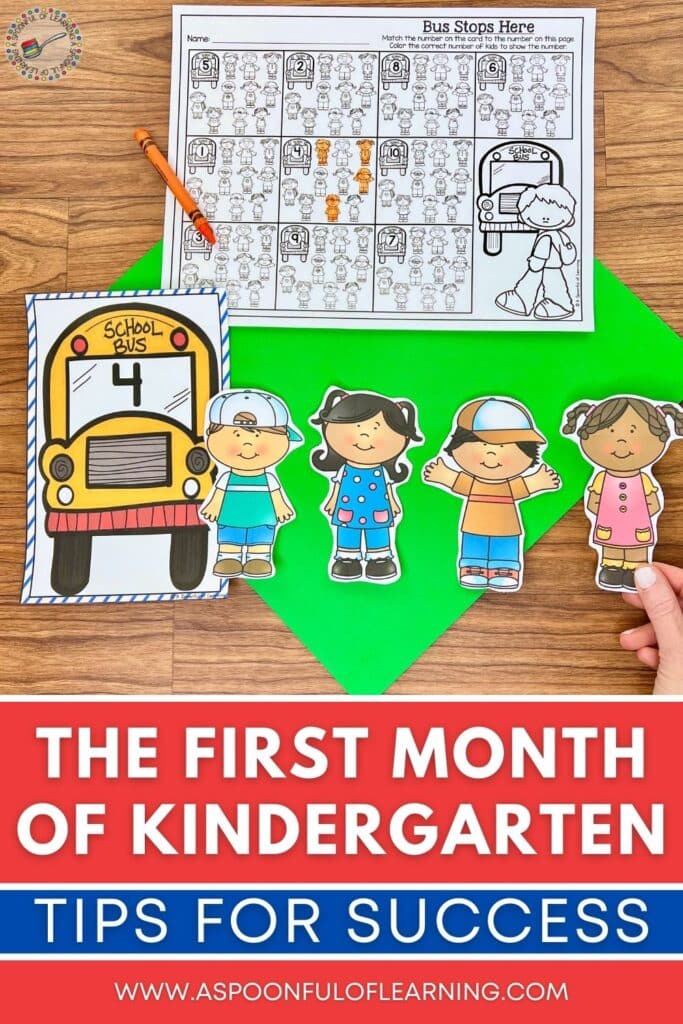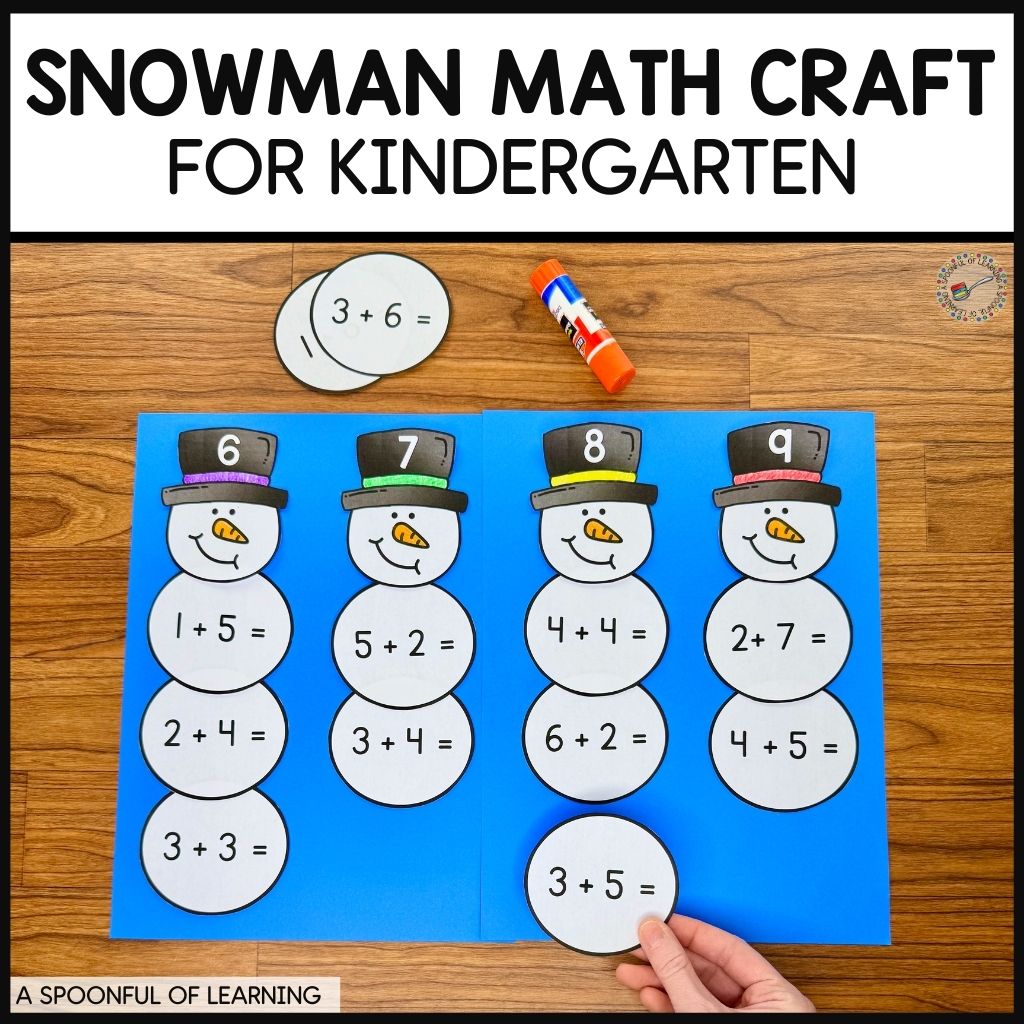
Holiday Activities and Freebies!
When it comes to planning for the beginning of kindergarten, we often focus on the first week. We all know how important those first few days of the school year can be! However, it’s important to keep up this momentum! In this post, I’m going to share tips to help you have a successful first month of kindergarten.
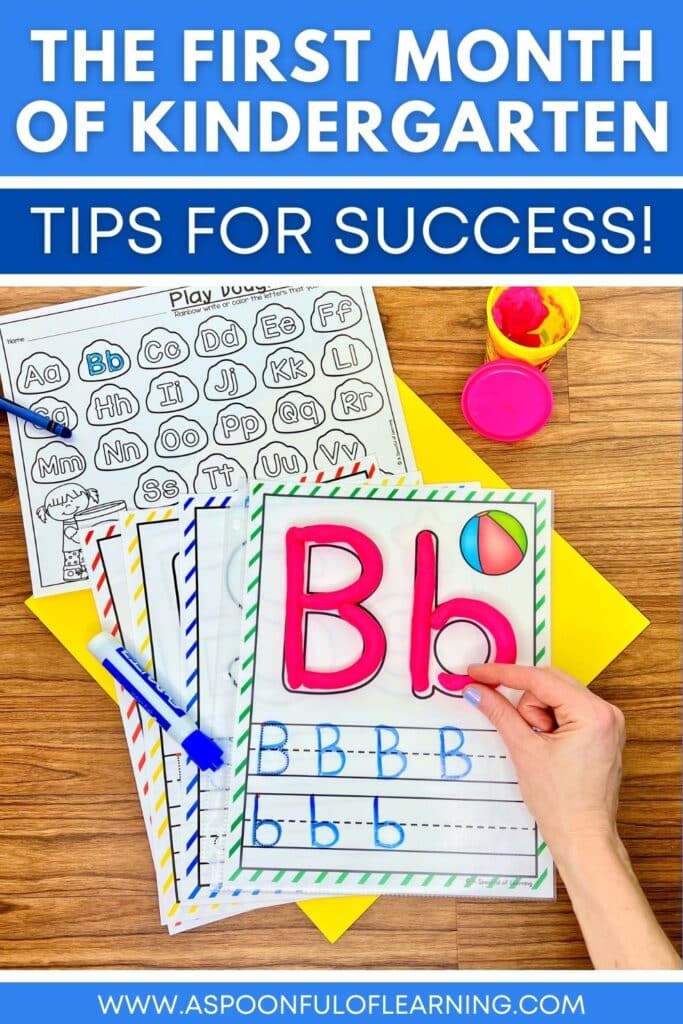
The first month of kindergarten is jam-packed with learning and back-to-school fun! No matter what you have planned for your students, there are just a few things that you can do to help it go a little bit more smoothly.
As I mentioned at the beginning of the post, the way you start the school year can set the tone for the entire first month and beyond. You’ll want to have a solid plan for the first day of kindergarten, which is a milestone that is full of big feelings for your students and their families.

A lot is riding on the first day of school, which can make it a daunting day for you to plan. That’s why I’ve put together a set of free lesson plans to make it easy to start your school year on the right foot. It’s full of activities and a suggested sequence for how to space everything out during that busy first day.
A huge focus of the first week of school is routines and procedures. As kindergarten teachers, we need to take plenty of time to directly teach these procedures and give students a chance to practice them. As the month progresses and these procedures aren’t top-of-mind for you and your students, they have the potential to loosen up a little bit.
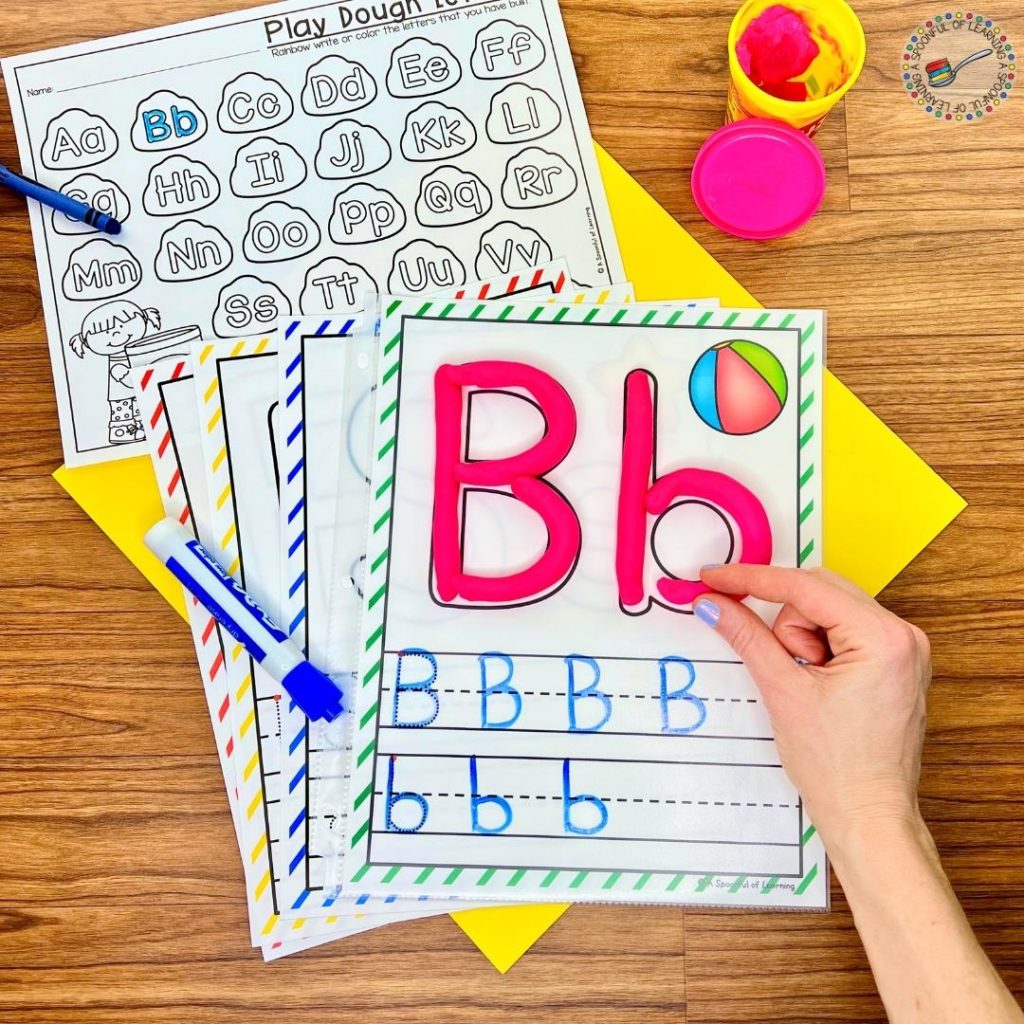
Be sure to take the time to review procedures with your students throughout the first month of school. If you notice that they are having trouble lining up appropriately, don’t hesitate to stop and review it the same way you did on the first day of school.
Repetition isn’t just for practicing procedures! Early literacy and math concepts require a lot of repetition in order for students to reach mastery. During the first month of school, students will practice skills like name recognition, counting, and letter identification over and over again. This repetition and consistency is essential for young learners!
However, consistency doesn’t have to be tedious, redundant, or boring! You can help your students remain engaged in the repetitive skill practice they need by using a variety of different strategies and activities. Be sure to include activities that incorporate some hands-on engagement!
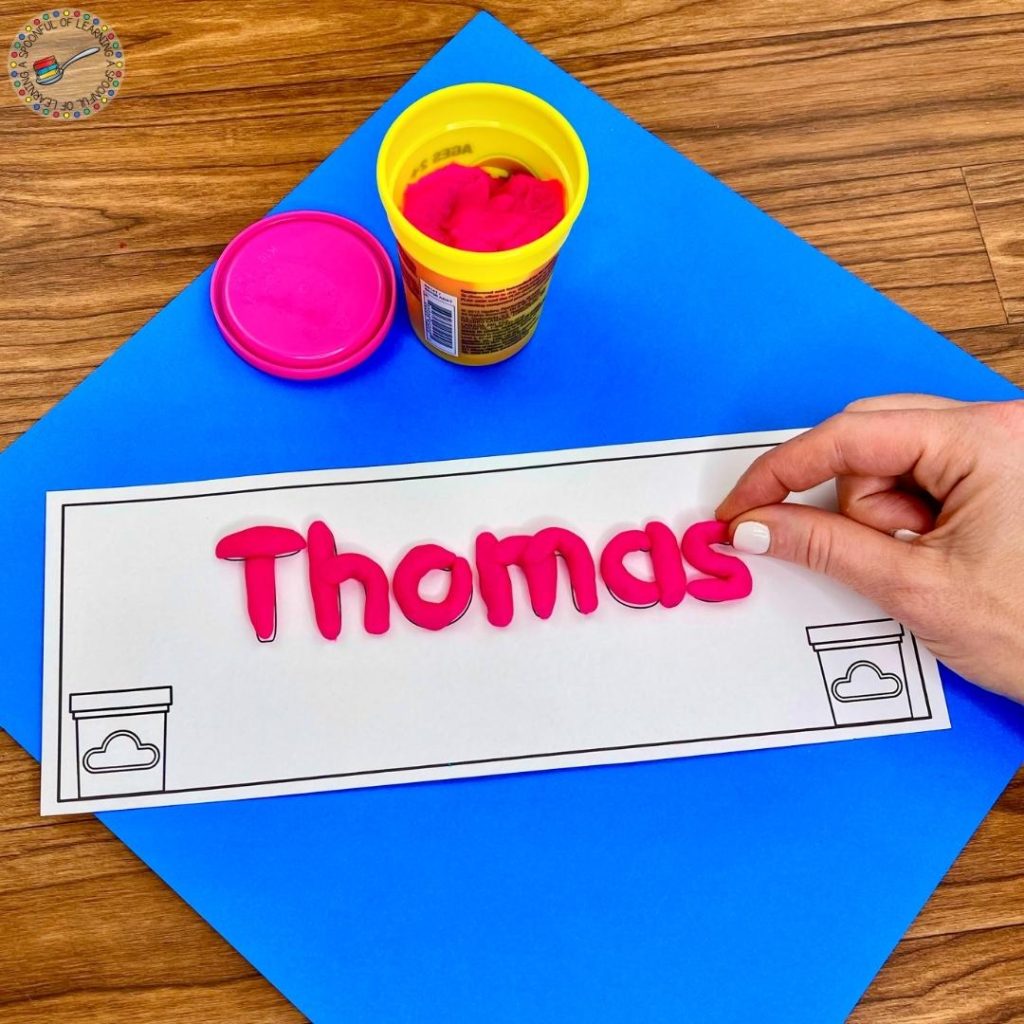
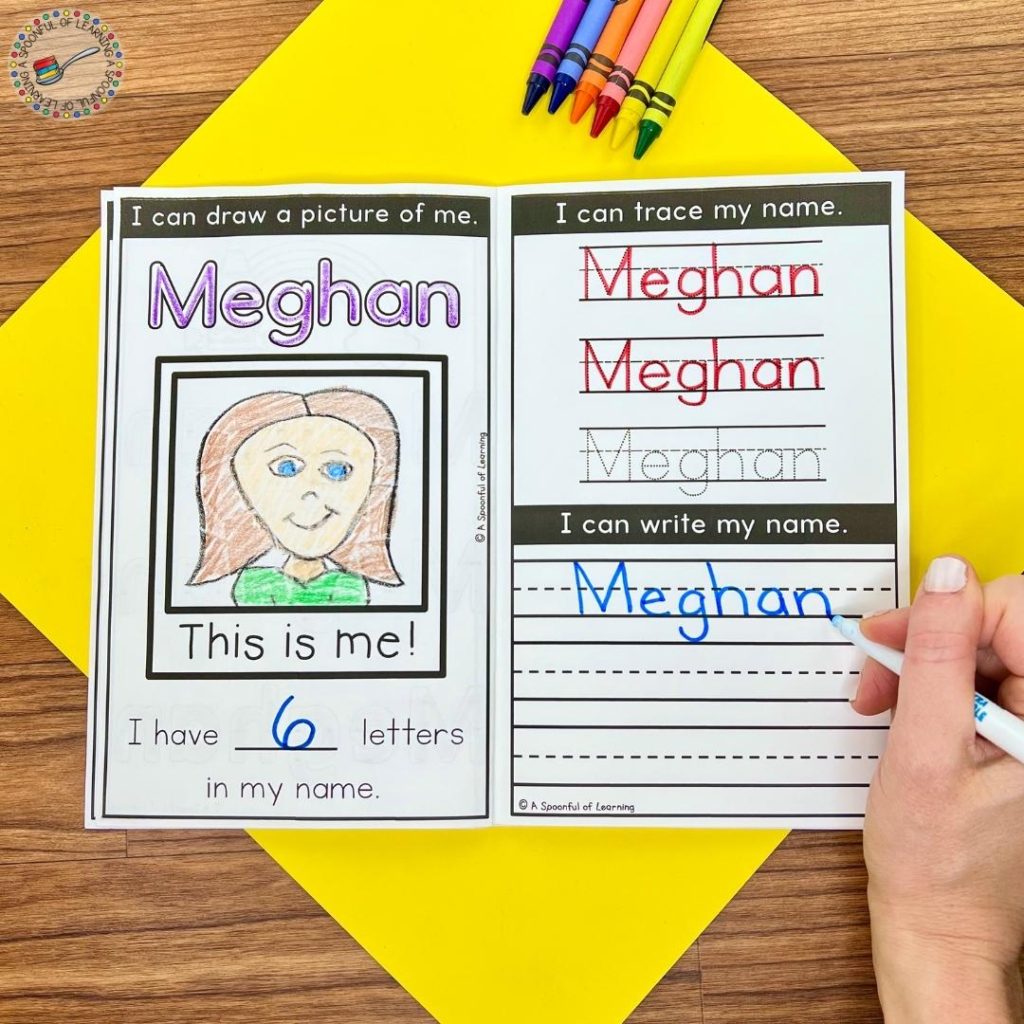
For example, you can keep your students excited about name practice by using fun activities like play dough mats or printable name practice books.
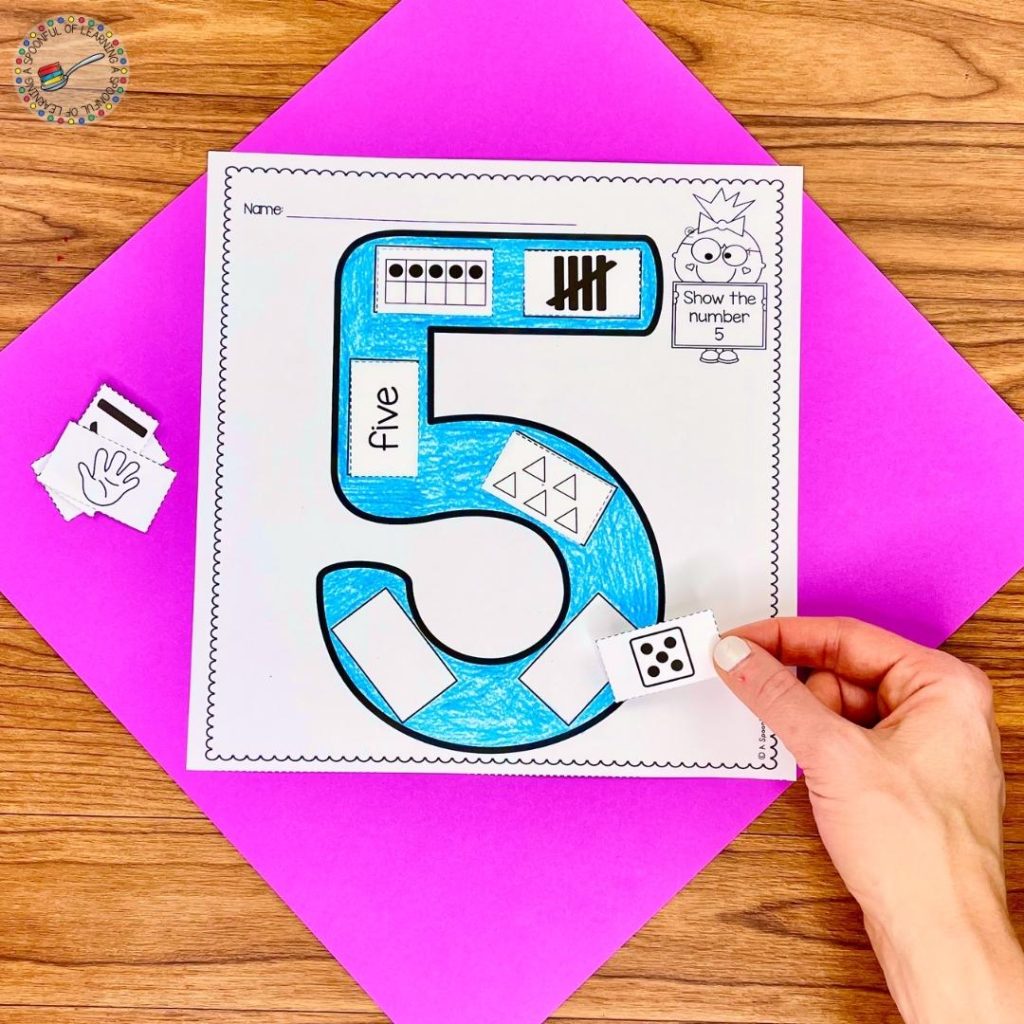
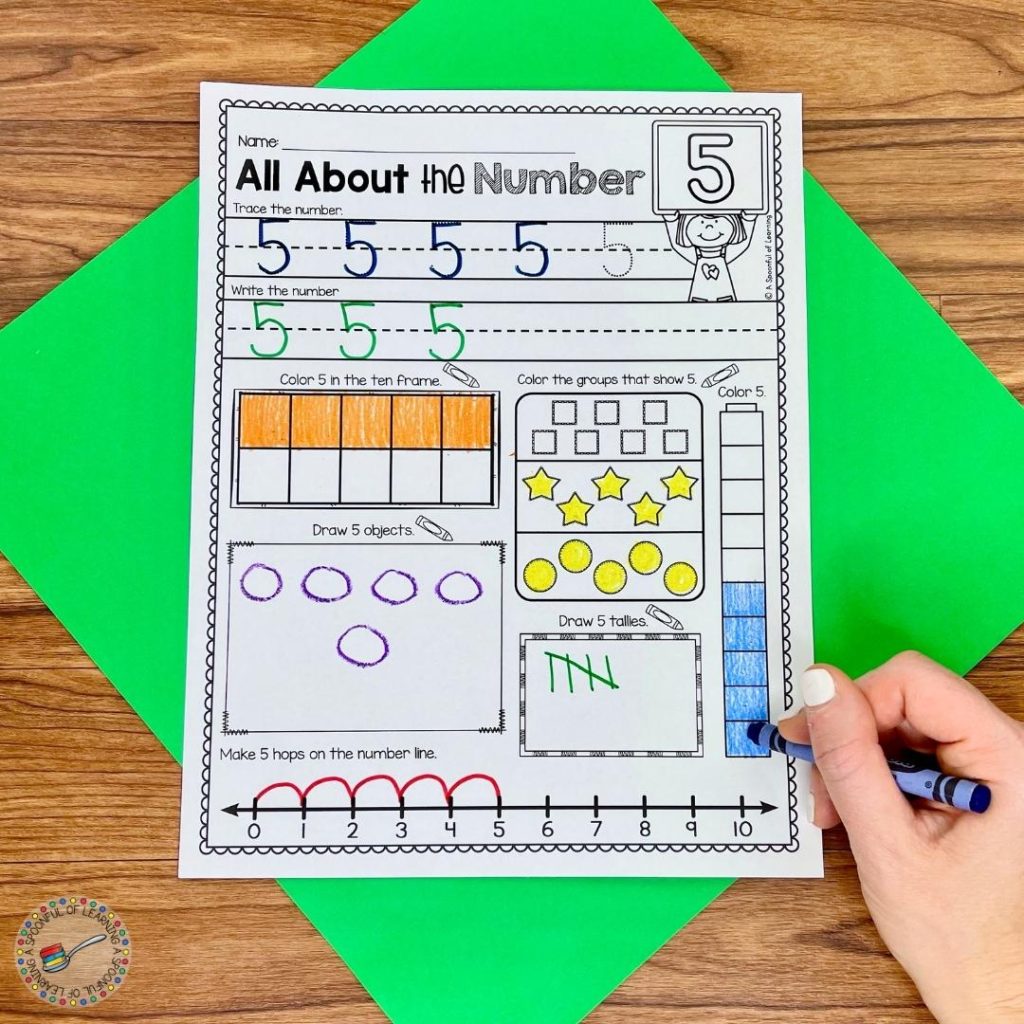
It’s amazing what just a small change in format can do for student engagement! Take these number sense printables as an example. Students are practicing many of the same number recognition and counting activities, just in a slightly different way.
An easy way to bring more engagement to literacy and math skill practice is by setting up learning routines like morning work and centers. Once your students can rotate through centers independently, you can easily add a variety of different activities for literacy and math practice. This is a great way for students to get the repetition they need while maintaining engagement.
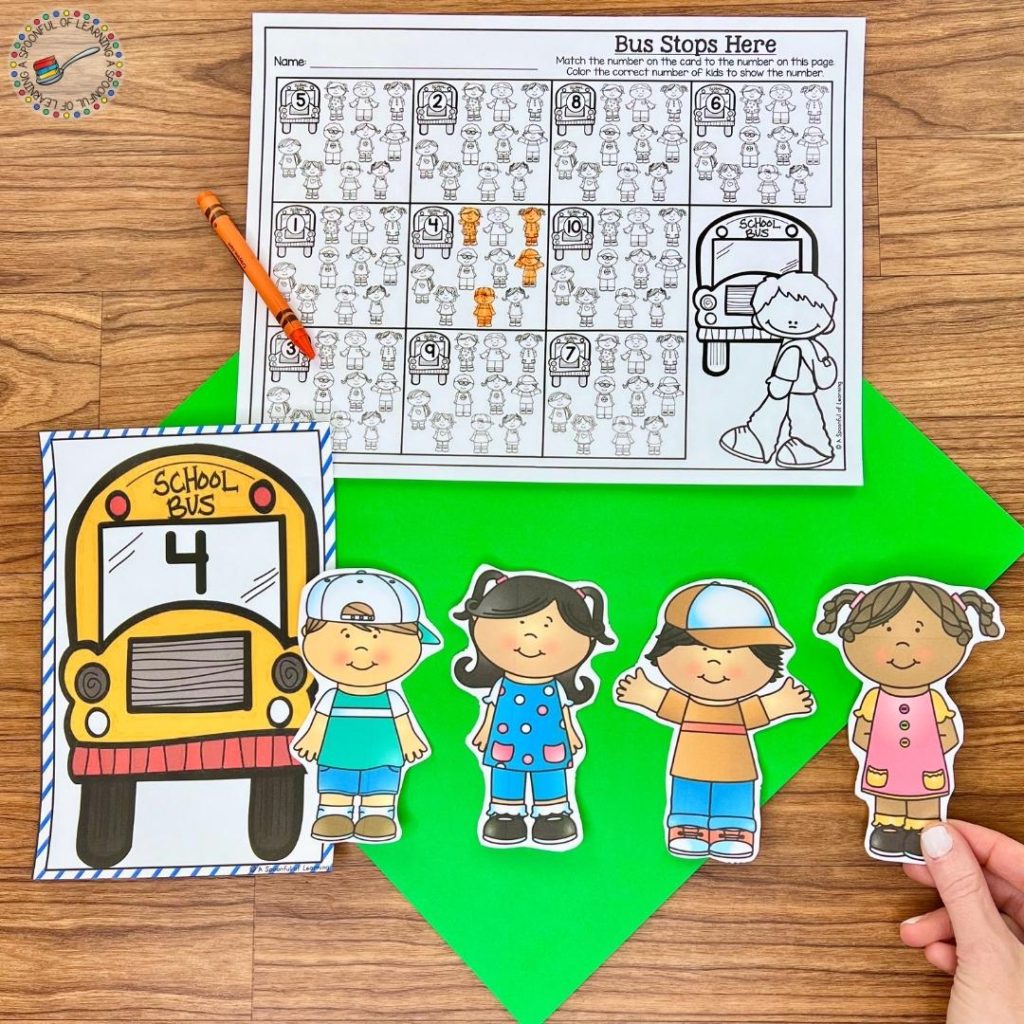
However, it takes time and effort to get these learning routines up and running. The first month of kindergarten is a crucial time for introducing your learning routines to your students. I have written an entire blog post about how to introduce centers to young kindergarten students. You can also get your morning work routine up and running during the first month of school.
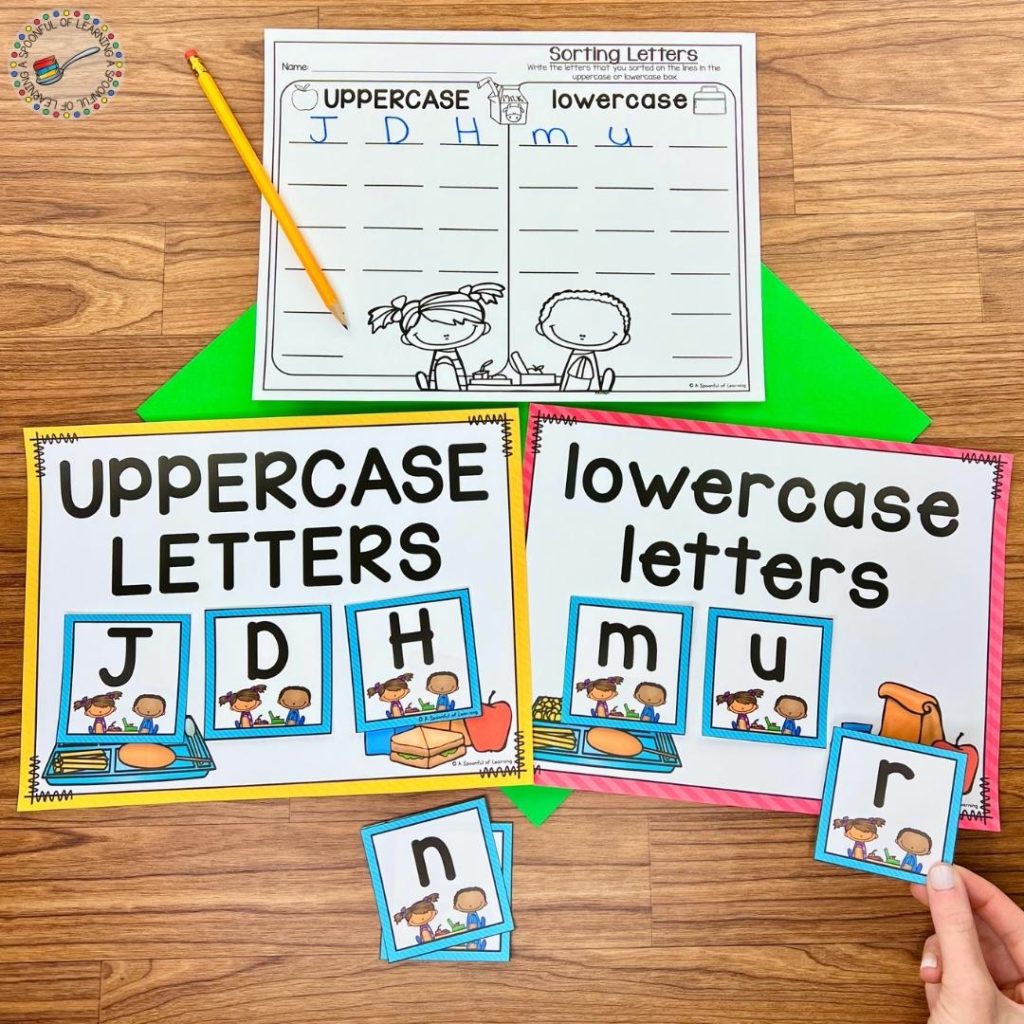
Taking the time to get your learning routines established will help your entire year go more smoothly. Your students will be able to practice important literacy and math skills with more independence, helping them become more confident learners.
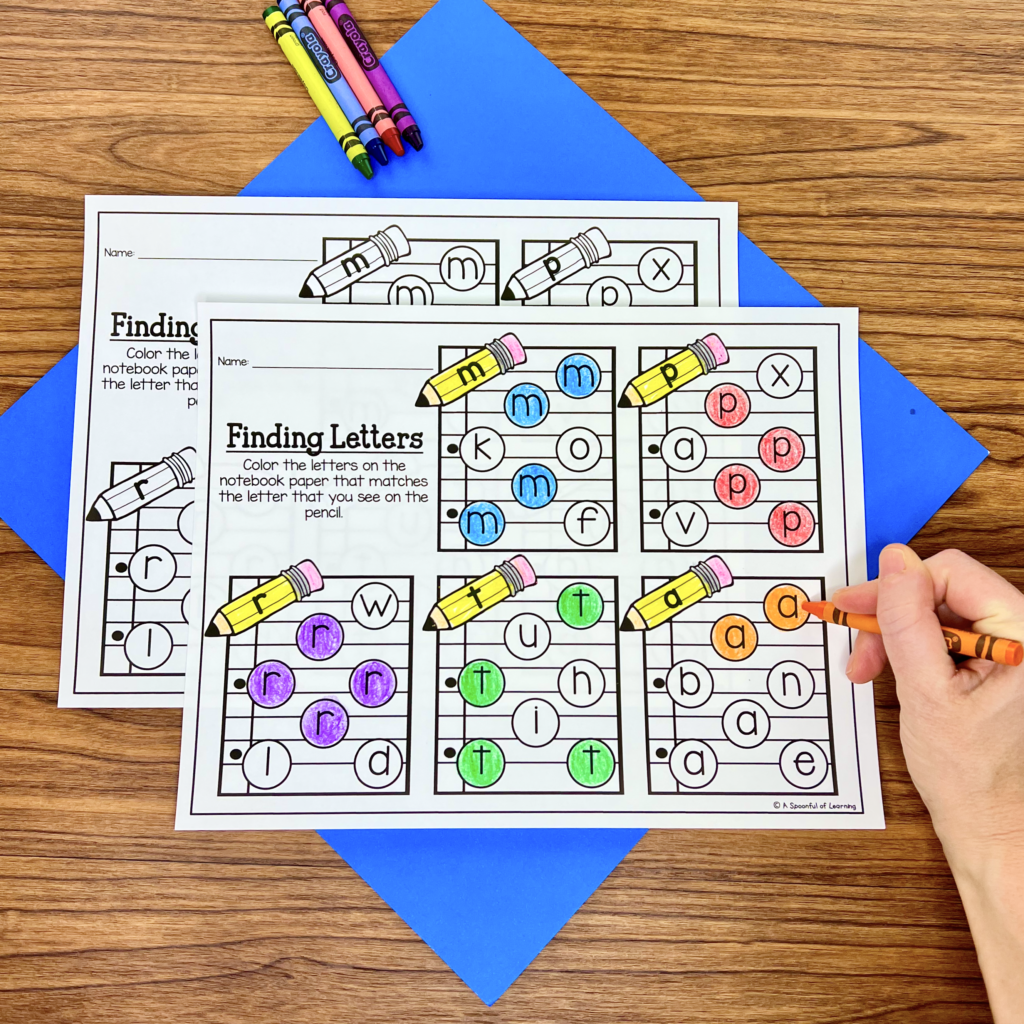
The first month of kindergarten is also a key time to get your homework routine up and running, if that’s something that you’d like to incorporate into your daily routine. Be sure to check out my post with tips for planning your entire year of kindergarten homework!
One of the most important things that students need to practice during the first month of kindergarten is their fine motor skills. Many kindergarteners start school having never used scissors or school glue before! In order to set the tone for a successful school year, you’ll want to give your students plenty of time to use school supplies safely and effectively.
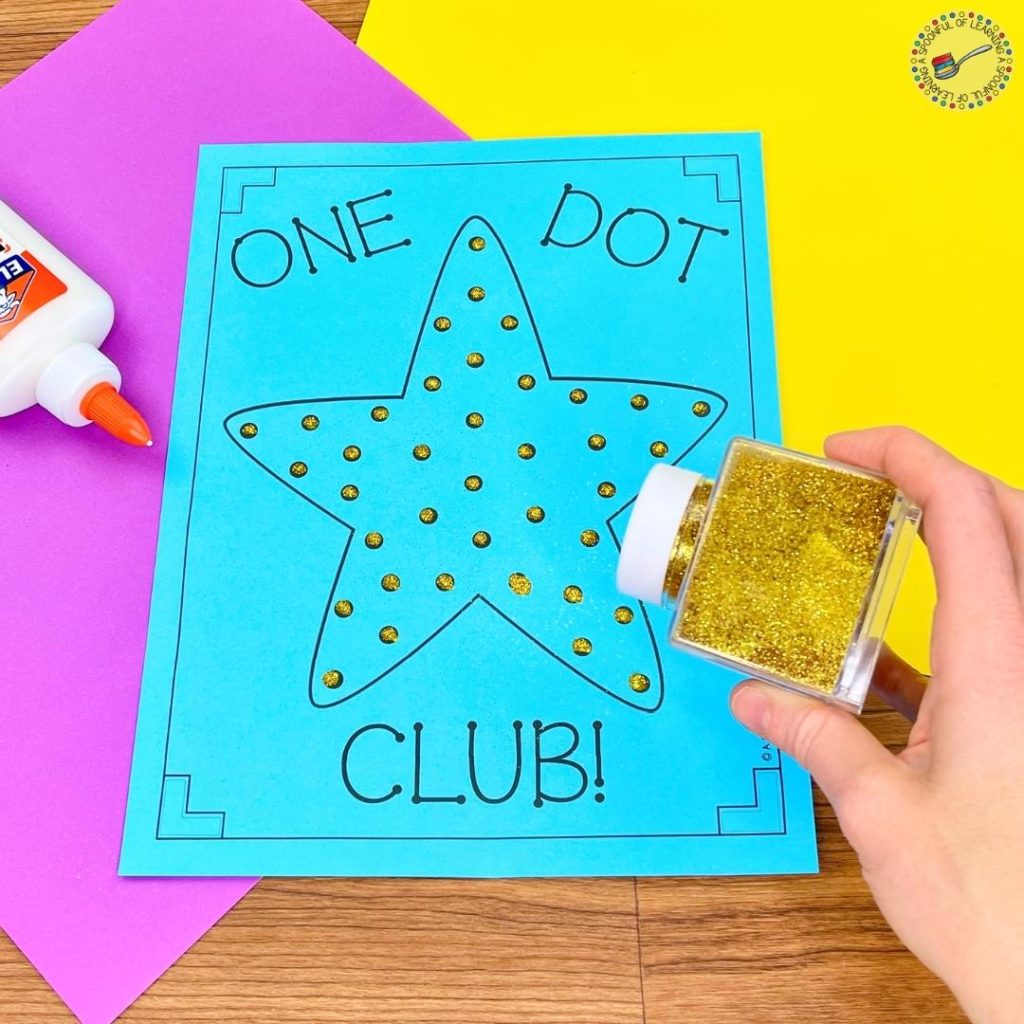
There are many different ways that you can help students improve their hand strength and coordination during the first month of school. This One-Dot Club activity is always a favorite, as well as fun crafts!
Would you like a fun craft to use with your students during the first month of kindergarten? This free alphabet craft would be a great addition to your lesson plans. You can do this as a whole group art activity, within literacy centers, or during small group practice.
I’ve put together everything you need to do this craft with your students, including templates, illustrated directions, and additional tips.
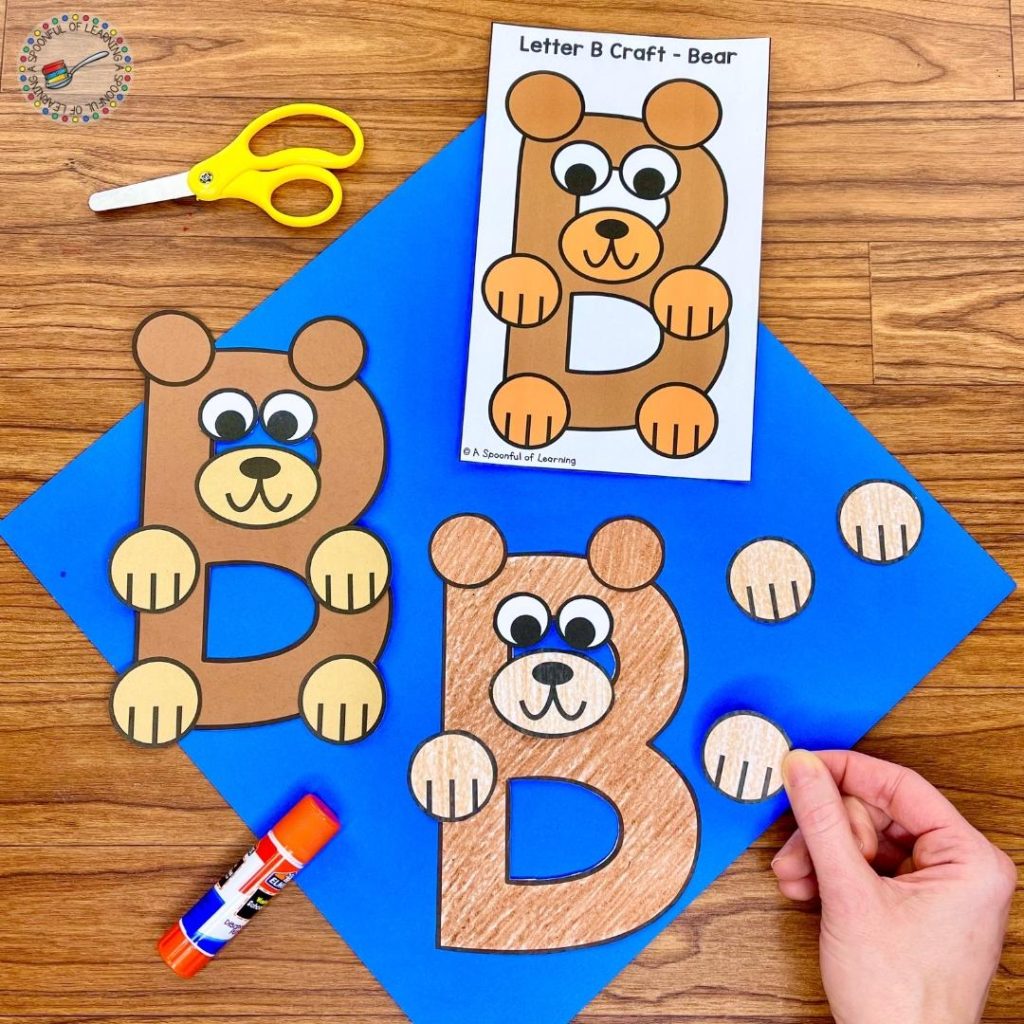
This craft comes with two different versions: Craft pieces that you can print onto different colors of paper or individual blackline craft pages that your students can color themselves. Either way, this alphabet craft is a fun way to incorporate a little more fine motor practice into your daily learning routine!
Just fill out the form below and I’ll send the craft directly to your inbox.
Be sure to save this post if you’d like to come back to it later! Just add the pin below to your favorite board on Pinterest. You’ll be able to quickly find these tips and printables when you’re ready to lesson plan for your first month of kindergarten.
